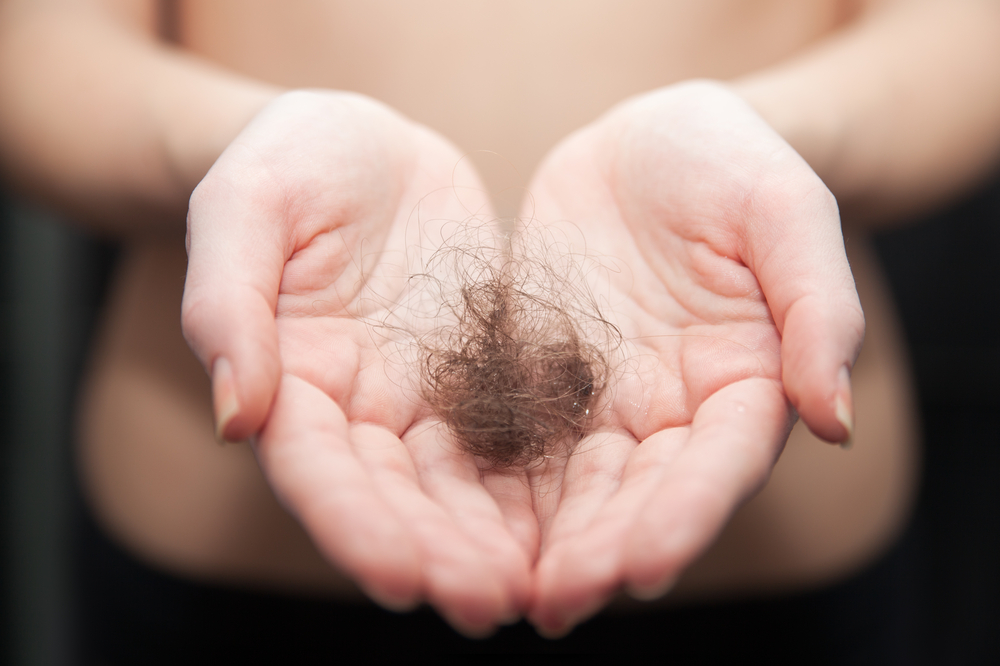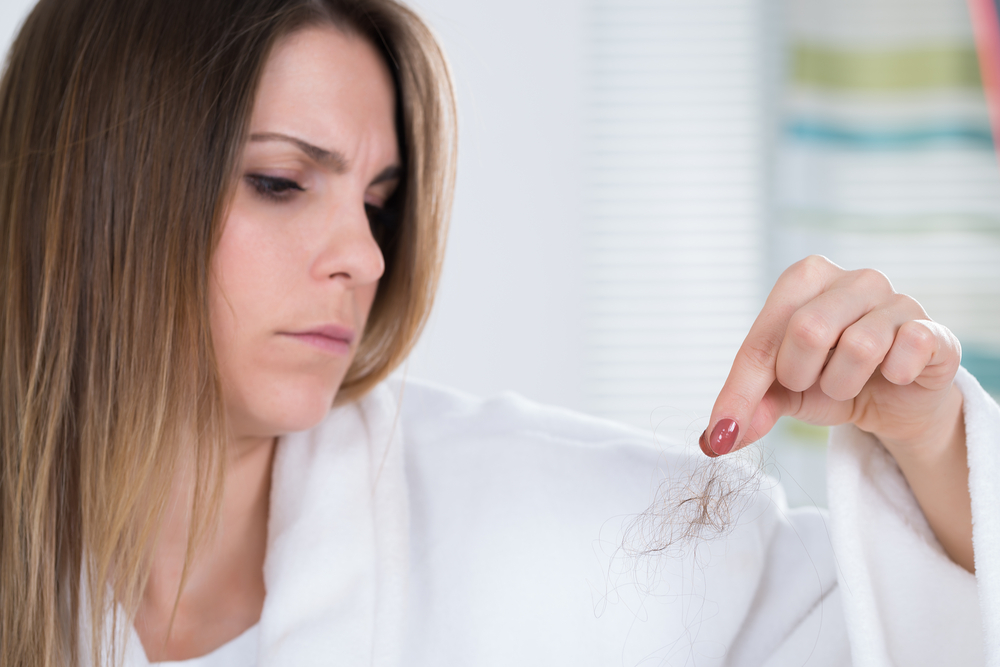The hair loss is not life-threatening, though it can have devastating psychological effects. It can appear in many different ways, depending on what’s causing it. It can initiate suddenly or gradually and affect just your scalp or your whole body. Some types of hair loss are temporary, and others are permanent.
Signs and Symptoms of Hair Loss include:
- Gradual thinning on top of the head– It is the most common type of hair loss, affecting both men and women as they age. In men, hair often begins to recede from the forehead in a line. Women generally, retain the hairline on the forehead but have a broadening of the part in their hair.

- Patchy bald spots– Some people experience smooth, coin-sized bald spots. This kind of hair loss majorly affects the scalp only, but sometimes it also occurs in beards or eyebrows. In some cases, your skin may become itchy or painful before the hair falls out.
- Sudden loosening of hair– A physical or emotional shock can cause hair to loosen. Handfuls of hair may come out when combing or washing your hair or even after gentle hair do. This type of hair loss causes overall hair thinning but not bald patches.
- Full body hair loss– Some conditions and medical treatments, such as chemotherapy for cancer, can result in the loss of hair from all over your body. In this case, the hair usually grows back.
- Patches of scaling that spread over the scalp– This is a sign of ringworm. It may be accompanied by breaking hair, redness, swelling and at times oozing.
Also Read: Understanding Osteoporosis
Causes of Hair Loss
Hair loss is often caused by genetics, that is, it runs in families. In general, it is not a symptom of the disease, however, some health issues like thyroid disease, anemia, ringworm of the scalp, and anorexia can cause hair loss. In addition, some medications such as cancer chemotherapy may cause temporary hair loss. Hair growth usually gets normalized when the medications are stopped. In some cases, hormone changes after giving birth or during menopause and can cause thinning hair. Some of the causes of hair loss are listed below:
- Male Pattern Baldness
One cause of male pattern baldness is genetic or having a family history of baldness. It is found that male pattern baldness is associated with male sex hormones called androgens. The androgens are also responsible for regulating hair growth. Hair loss treatment for men is available to combat male pattern baldness.
- Alopecia Areata
In alopecia areata, the main symptom is hair loss. Hair falls out in small round patches on the scalp. These patches are several centimeters or less. Hair loss might also occur in other parts of the body. You may notice initially, the clumps of hair on your pillow or in the towel. Although, other types of diseases can also cause hair to fall out in a similar pattern so, hair loss alone can’t be the reason to diagnose alopecia areata.
- Hypothyroidism
It is one of the most common issues that is heard as a major reason for hair fall, creating a wide demand for hair fall treatment and hair growth products. The most common causes are surgical removal of your thyroid, autoimmune diseases, and radiation treatment.
- Nutritional Deficiencies
The body requires many different vitamins and minerals, as they are essential for both development and prevention of disease. These vitamins and minerals are often referred to as micronutrients. They haven’t produced naturally in the body, so you have to include them into your diet.
Nutritional deficiency occurs when the body doesn’t intake the necessary amount of a nutrient. Deficiencies can lead to a variety of health problems. These include health issues like hair loss, digestion, skin problems, stunted or defective bone growth, and even dementia.
- Acute Stress Disorder
Experiencing or witnessing one or more chronic events can lead to ASD. Such events cause intense fear, horror, or helplessness. Traumatic events that can cause ASD include:
- death
- a threat of death to themselves or others
- a threat of serious injury to themselves or others
- a threat to the physical integrity of themselves or others
- Hashimoto’s Disease.
Hashimoto’s disease damages your thyroid function. It is the most common cause of hypothyroidism, leading to hair fall.
- Syphilis
Syphilis is a sexually transmitted infection caused by a type of bacteria known as Treponema pallidum. The rate of women infected with syphilis has been declining, but the rate among men, particularly homosexual men, has been rising.
Also Read: Ebola Virus Disease (EVD) – Cause, Prevention and Treatment
On an average, you lose fifty to a hundred hairs a day. That’s just hair going through its cycles, and there will be a new one to replace it. But excessive hair loss, even after following the hair loss prevention methods can be a sign of a serious medical condition that is required to be analyzed by a dermatologist and possible treatment. Sudden hair loss can signal an underlying medical condition that requires treatment. Thus, talk to your doctor if you notice sudden or patchy hair loss or more than usual hair loss when combing or washing and strictly adhere to the hair loss treatment.




